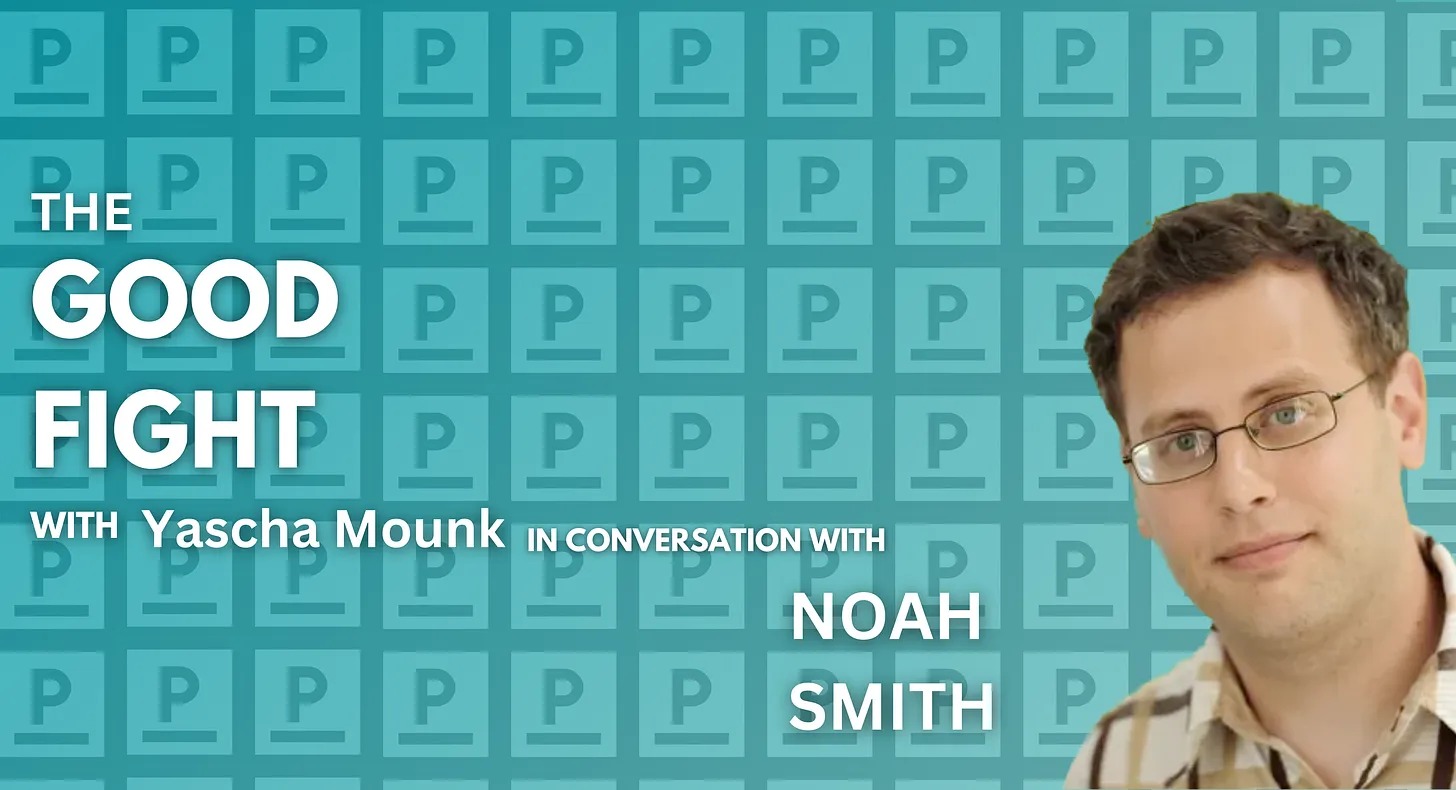Yascha Mounk at his Substack:
 Yascha Mounk: I’ve been trying to think through the state of economic policy at the moment, and it seems to me that we’re in a strange moment where there was a clear paradigm that economists followed in the ‘90s and perhaps the early 2000s, and that ran aground. Then there was a principled alternative to it that parts of the left tried to put forward, but that seems to have run aground as well.
Yascha Mounk: I’ve been trying to think through the state of economic policy at the moment, and it seems to me that we’re in a strange moment where there was a clear paradigm that economists followed in the ‘90s and perhaps the early 2000s, and that ran aground. Then there was a principled alternative to it that parts of the left tried to put forward, but that seems to have run aground as well.
Do you think there’s a kind of clear structure to how, let’s say, the mainstream of the Democratic Party thinks about economic policy right now?
Noah Smith: Well, in the 2000s, a kind of an intellectual movement among progressives started to crystallize, which I guess for want of a better term you could call anti-neoliberalism. People basically got a short list of things they thought the market got wrong and told this sort of simplified, potted history: In the 1980s, we decided markets could do everything, cut the government, and then this led to rising inequality, falling worker power, environmental degradation, etc.. And they thought that in order to get rid of those, we need to basically reverse the neoliberal changes—to strengthen unions, various kinds of regulations, and the welfare state. And that was the basic progressive program. And you saw some elements of that program get implemented by Biden, but a lot got blocked.
But the neoliberal turn was a lot less dramatic, I think, than people realize.
More here.
Enjoying the content on 3QD? Help keep us going by donating now.
